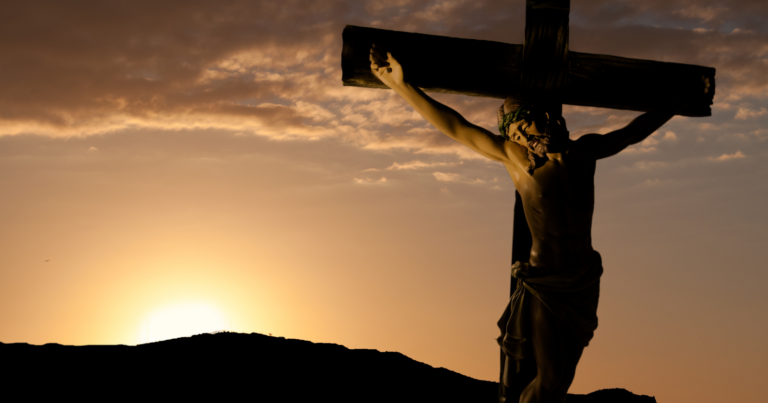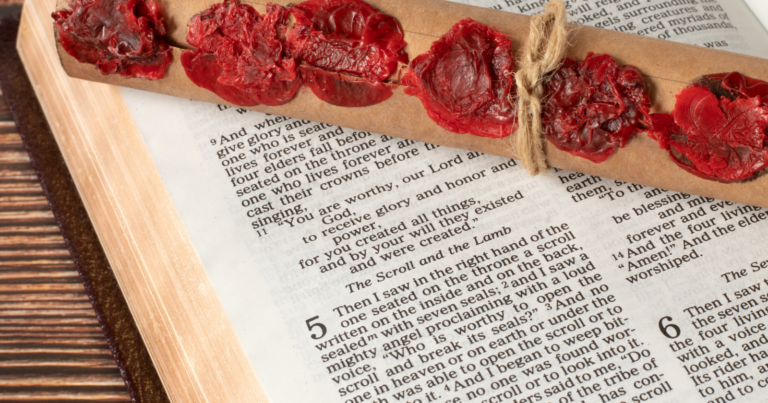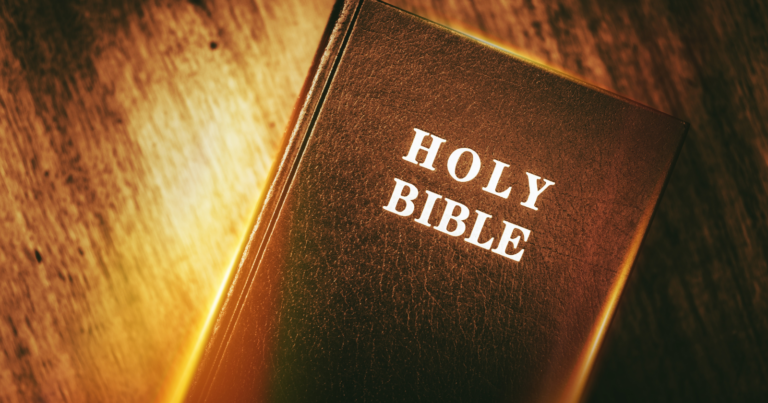Imagine unlocking a treasure trove of words that elevate your expressions of worship and praise, each one rich with history, depth, and spiritual significance.
The Hebrew language offers just that — a palette of profound terms that capture the essence of our deepest reverences and adorations in ways that transcend ordinary language.
This article will introduce you to 9 Hebrew words for worship and praise, each carrying its own unique shade of meaning and heart-stirring nuance.
We’ll unpack their meanings, delve into their usage in Scripture, and reflect on their relevance in our spiritual practices today.
Exploring Hebrew words for worship and praise
The Hebrew language is rich with words that convey the multifaceted nature of worship and praise, each offering a deeper insight into how we can connect with God.
These 9 Hebrew words are not just terms but actions that guide us in expressing our reverence and adoration for the Almighty.
They encompass a range of expressions from singing and dancing to kneeling and playing instruments. All this illustrates the diverse ways we can engage with God in worship.
- Shabach: To shout loudly or command. Shabach is a call to proclaim God’s greatness with boldness.
- Yadah: To throw out the hands or to worship with extended hands. Yada invites us to surrender fully to God in worship.
- Halal: To praise, celebrate, or boast. This word encourages us to be vocal and exuberant in our praise of God.
- Zamar: To play musical instruments. Zamar reminds us that instruments can be used to glorify God.
- Barak: To kneel down. Barach shows worship as an act of humility before God.
- Todah: To give thanks or confession. Towdah emphasizes worship as a response to what God has done for us.
- Tehillah: To sing praises. Tehillah encourages us to express our heart’s song to God.
- Taqa: To clap or strike the hands together in praise. Taqa signifies joy and celebration in God’s presence.
- Makal: To dance or leap for joy. Makal reflects the physical expression of joy in worship.
Now that we’ve explored these words, in the next section, we’ll focus on how to use these nine Hebrew words in our daily worship and spiritual practice.
1. Shachah: Bowing in reverence
The Hebrew word ‘Shachah’ is one of the most frequently used terms for worship in the Bible.
Literally, this word translates to ‘to bow down’ or ‘to prostrate oneself’.
This action signifies not only physical submission but also psychological and spiritual surrender to God.
In the Bible, ‘Shachah’ is often used to denote the act of bowing down before God in worship, expressing deep respect and reverence.
For instance, in Genesis 22:5, Abraham tells his servants that he and Isaac are going to ‘Shachah’ – to worship – before returning to them.
In general, ‘Shachah’ highlights the humility inherent in true worship. It reminds us that worship is not about exalting ourselves, but about humbling ourselves before the divine.
2. Yadah: Extending hands in praise
The second term we explore is ‘Yadah’ — a Hebrew word that translates to ‘to extend the hand’, ‘to throw out the hand’, or ‘to give thanks’.
In the Bible, ‘Yadah’ is often used to express praise and thanksgiving towards God.
This word beautifully illustrates the openness and acknowledgment involved in praising God.
When we ‘Yadah’, we extend our hands towards the heavens, symbolizing our acknowledgment of God’s greatness and our gratitude for His blessings.
One prominent instance of ‘Yadah’ in Scripture is found in 2 Chronicles 20:21.
Here, King Jehoshaphat appoints singers to ‘Yadah’ – to give thanks – to the Lord as they go out at the head of the army.
Understanding ‘Yadah’ challenges us to reflect on our own expressions of praise.
3. Halal: To shine, to boast, to show
Now, let’s turn our attention to a term that you may find familiar – ‘Halal’, an intriguing Hebrew word.
This term is the root of ‘Hallelujah’, a phrase used globally in worship songs and hymns.
But what does ‘Halal’ signify?
Well, ‘Halal’ translates to ‘to shine’, ‘to boast’, or ‘to show’. It’s used in the context of praising God, often with a sense of joy and celebration.
The Psalms frequently use ‘Halal’ to express high-spirited, exuberant praise.
Interestingly, ‘Halal’ extends beyond verbal praise. It implies a visible, demonstrative form of worship – a shining forth of our adoration for God.
This understanding of ‘Halal’ encourages us to consider:
- Are our lives a testament to God’s glory?
- Do we ‘shine forth’ His love and grace in our actions and attitudes?
4. Zamar: To make music to God
Have you ever considered the role of music in your worship?
The fourth term we explore, ‘Zamar’, will make you reflect on this.
‘Zamar’ is a Hebrew word that means ‘to make music to God’, ‘to celebrate in song and music’, or ‘to touch the strings’.
In the Bible, ‘Zamar’ depicts worship that involves musical instruments, singing, and even dancing. It signifies a joyous, lively celebration of God’s goodness.
For instance, Psalm 98:4 encourages believers to ‘Zamar’ – to make a joyful noise unto the Lord.
In a broader sense, reflecting on ‘Zamar’ can inspire us to enrich our personal worship practices with heartfelt expressions of joy and gratitude.
Did you know? The word “Psalm” comes from the Greek translation of the Hebrew word “mizmor”, which is derived from “zamar”.
5. Barak: To bless, to kneel
The fifth term in our exploration is ‘Barak’ — a Hebrew word translating to ‘to bless’ or ‘to kneel’.
In the Scriptures, ‘Barak’ is used to express blessing, praise, or thankfulness to God.
‘Barak’ conveys the act of kneeling or bowing as a sign of respect and adoration. It denotes a posture of humility and recognition of God’s sovereignty.
Here are a few instances where ‘Barak’ is used in the Bible:
- Psalm 103:1 uses ‘Barak’ in the phrase “Bless the Lord, O my soul…”
- In 1 Chronicles 29:20, David instructs the congregation to “bless the Lord your God.”
In essence, ‘Barak’ encourages a posture of humility and thankfulness in our worship and praise.
6. Todah: Confession through thanksgiving
We’ve now arrived at a term that deeply resonates with me – ‘Todah’.
This Hebrew word translates to ‘confession’ and is often associated with thanksgiving. It’s an offering of praise, a confession of our sins, and a declaration of our gratitude all rolled into one.
In the Bible, ‘Todah’ is used in the context of giving thanks to God for His enduring mercy and grace. It’s an acknowledgment of our shortcomings and an expression of gratitude for His forgiveness.
Let’s consider Psalm 50:14, where God says, “Offer to God a sacrifice of thanksgiving (Todah)…”
This verse beautifully encapsulates the essence of ‘Todah’, reminding us that our confessions and expressions of gratitude are precious offerings to God.
7. Tehillah: A song of praise
Imagine you’re in a moment of profound joy and gratitude. What would be your natural response?
For many, it’s a spontaneous outburst of song. T
his brings us to our next term — ‘Tehillah’, which translates as a song of praise’ or ‘a hymn’.
In the Bible, ‘Tehillah’ signifies songs that express adoration and thankfulness to God. These are not just any songs, but spontaneous, heartfelt outpourings of love and gratitude towards the divine.
An example of ‘Tehillah’ in Scripture is Psalm 22:3, where it is said that God inhabits the praises (Tehillah) of His people.
Understanding ‘Tehillah’ prompts us to reflect on the spontaneity and sincerity of our worship.
Do we allow ourselves to express our gratitude and love for God freely and honestly?
This ancient term serves as a beautiful reminder that our worship should be a joyous celebration — a spontaneous song from the heart.
8. Taqa: Clapping in joyful acclamation
When we think of worship, we often envision a serene, introspective experience.
Yet, ‘Taqa’ invites us to engage in joyous celebration.
This Hebrew term means ‘to clap’ or ‘to strike the hands together’ in praise, symbolizing jubilation and approval. It’s a vibrant expression of joy, a physical manifestation of our delight in God’s presence.
In Psalm 47:1, the call to “Clap your hands, all you nations” is an invitation to ‘Taqa’, to celebrate God’s sovereignty with exuberance.
Embracing ‘Taqa’ in our spiritual practices encourages us to express our happiness and gratitude openly, reminding us that worship is not only a reflective journey but also a celebration of divine love and grace.
9. Makal: Dancing with divine delight
Let’s finish our exploration with Makal — dance, as an expression of worship that carries a special place within the tapestry of faith.
‘Makal’, meaning ‘to dance’ or ‘to leap for joy’, captures the essence of physical worship that is free and unbridled.
This form of praise is a dynamic celebration of God’s goodness and an embodiment of our spiritual fervor.
Biblical narratives, like David dancing before the Lord in 2 Samuel 6:14, exemplify ‘Makal’—a heartfelt, physical expression of joy and thanksgiving.
Integrating ‘Makal’ into our worship invites us to celebrate our spiritual journey with our whole being, encouraging us to let go and find freedom in the rhythm of divine joy.
It’s a reminder that our entire existence can be an offering of praise, moving in harmony with God’s grace.
How do these ancient words inspire our worship today?
Hopefully, you found it fascinating to delve into these ancient biblical words for worship and praise.
By exploring Hebrew terms, we can gain a richer comprehension of how ancient Hebrew people practiced worship and praise in biblical times.
This understanding can also enhance our own expressions of faith, encouraging us to embrace a similar depth and diversity in our worship and praise.
After all, words are not just means of communication – they are bridges that connect us across time, cultures, and experiences.














